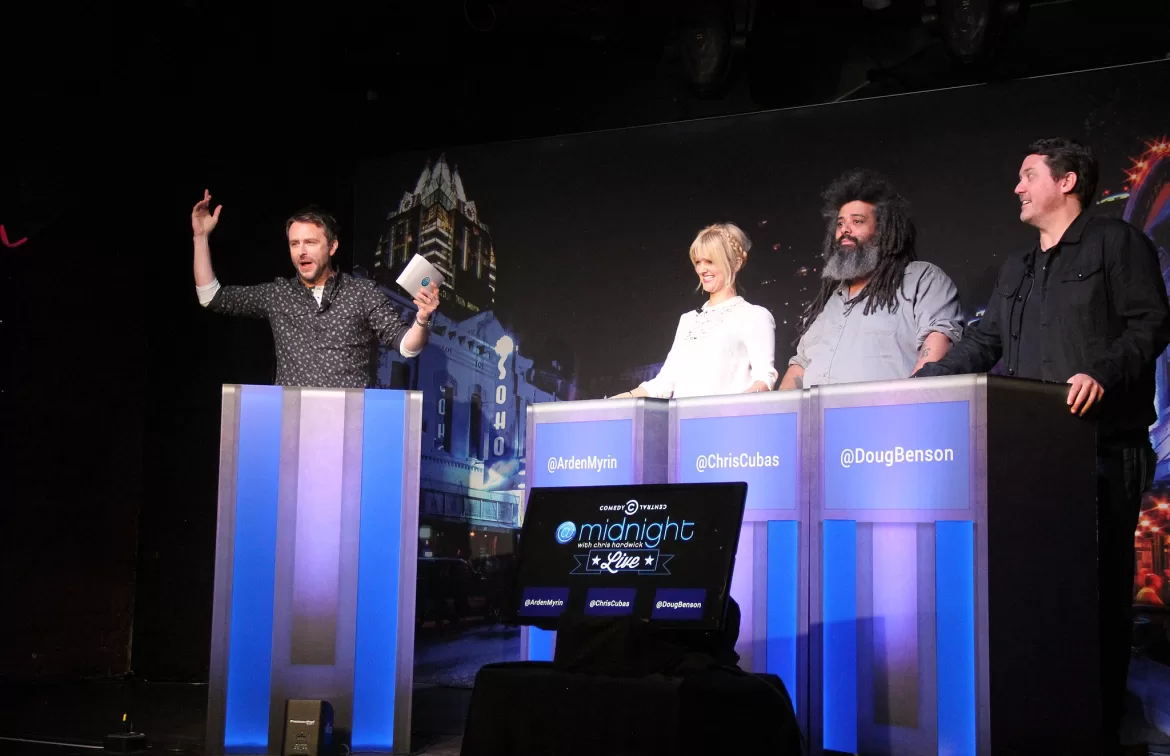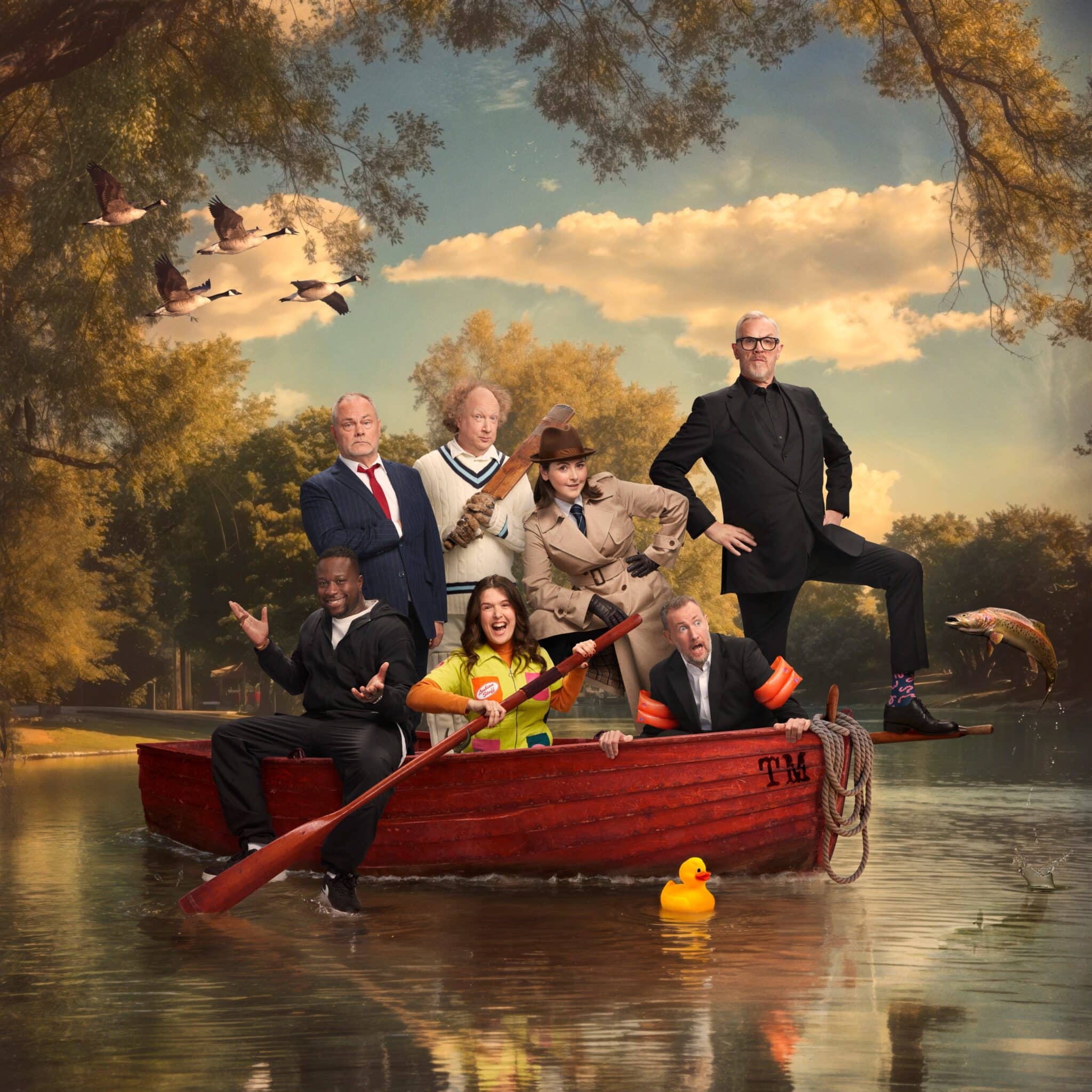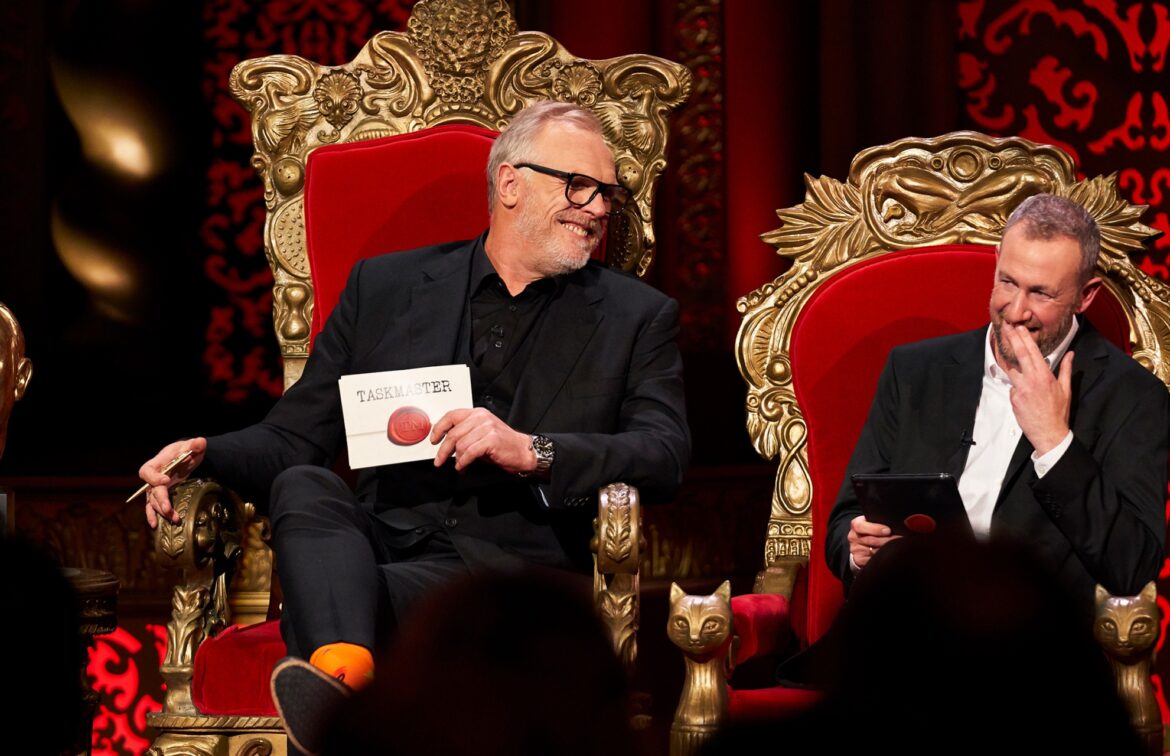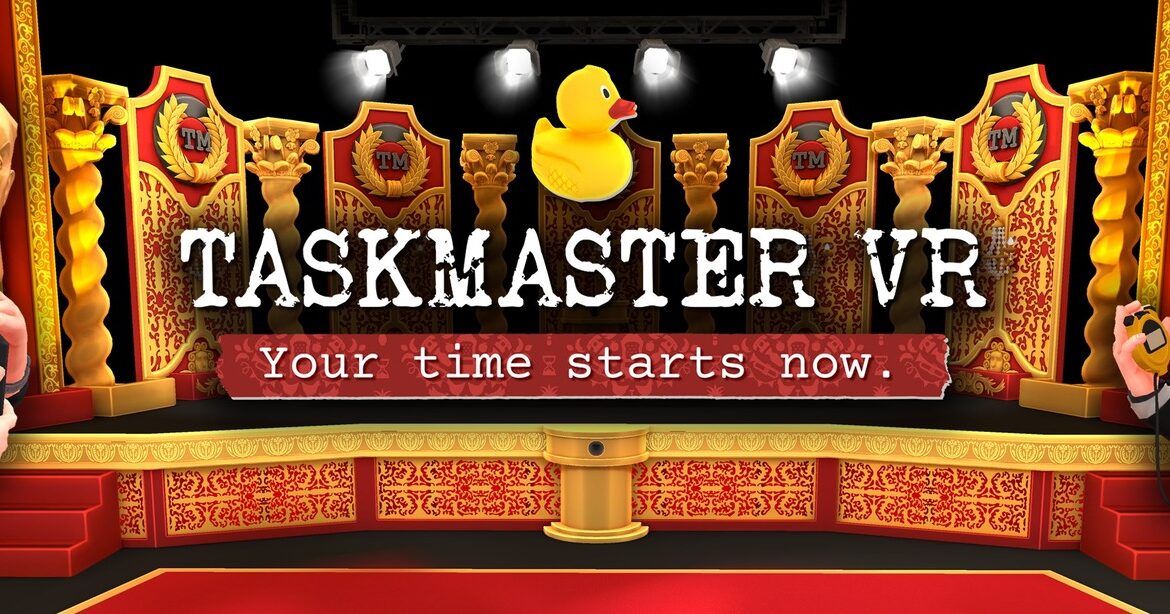According to Decider.com, CBS is considering replacing James Corden’s The Late Late Show with a version of Comedy Central’s show @midnight. @midnight ran from 2013 to 2017 with Chris Hardwick as the host alongside a revolving cast of guest comedians. @midnight was a rare success for modern American panel shows, running for 600 episodes and leading to many spun-off international adaptations of the show. While this is exciting news, especially those who are perhaps a bit tired of the late night format, but also panel shows in general. What I want to know though is why is America the inventor of the panel show such a dessert for quality panel shows? And why are the British so great at them?
You may have asked yourself this question too if you discovered in the past years of the pandemic, thanks to YouTube and BritBox, that the British have many excellent panel shows. I would include among my favorites Taskmaster, Would I Lie To You?, Mock the Week, which just ended its 17 year run, 8 Out of 10 Cats, its sister show 8 Out of 10 Cats Does Countdown, and QI. Each of these has a different format, but the commonality between them all is that as the name suggests there’s a panel, usually of hilarious comedians, but often general British celebrities as well from news anchors, to musicians, to even Corey Taylor of Slipknot – who was a true delight on QI.
What does America have though to match? If you watch Game Show Network you know classic Match Game, one of the most popular if not still the most popular panel show, was a stalwart of America’s peak panel show era. You may have also come across our attempts at British panel shows, such as Taskmaster, and found them wanting or realized you found them many years after they were canceled. Really one of the few successes though is Whose Line Is It Anyway?, and there’s reason to believe its success in the U.S. is largely due to the continuity of the cast members, with Ryan Stiles, Colin Mochrie, and others coming over to the U.S. to keep the show going albeit under a new host. Aside from that we simply have reboots of classic panel games, and even those are not gaining the attention here that panel shows in Britain do.
Channel 4 / BBC
One of the reasons I feel we do not have as many successful panel shows as England is less about us and more about the television landscape in Britain. The British have long embraced reality shows, which I’d argue are adjacent to panel shows, but more than that they have the BBC and Channel 4. The BBC and Channel 4 both have embraced the longstanding tradition of British comedy, and likewise have played host to some of the most excellent panel shows. Likewise there’s just fewer networks in the U.K. hosting original content, and these are two of the largest, so there’s a larger built-in audience. America has quite a fractured landscape, and though the Game Show Network has a decent audience, its not the same as primetime TV.

L to R: Greg Davies, Co-Host of Taskmaster, alongside Alex Horne, Creator and Co-Host of Taskmaster
America’s Comedy Landscape vs British Comedy Landscape
Here again is a major difference between Britain and the U.S. Right now I think it’s fair to say the U.K. is having a major breakout as home to some of the world’s funniest comedy stars. I wouldn’t even argue that solely based on the number of fantastic British, Irish, Welsh, and Scottish comedians, though I could list a dozen plus easily. I’m saying it in part too because of all the ex-pats from America, Canada, Germany and beyond who have moved to London in particular to further their career. Truly it says something if you’re emigrating to another country for comedy, and while many still hope to breakout in America, and thanks to these panel shows have started to, they can be major celebrities in the U.K. and have a standout career.
On the other hand America’s comedy landscape is both fractured and oversaturated. This isn’t even an entirely negative thing, especially the latter issue because as a fan of comedy I’m happy to have so many accessible comedians. The challenge though is it’s incredibly hard to break out in the American comedy scene as there’s so few outlets to shine. If you make it on SNL, have a set kill on late night, then you may have an instant platform, or you may not. More often success here is a viral comedy bit on TikTok, and much like a singer with a viral moment if you cannot capitalize on it then you may be a flash in the pan.
Britain has so many more built in platforms to succeed with comedy. For one there’s the Edinburgh Fringe Festival, which is a draw for comedians all over the world to show off their comedy. Additionally there’s the TV landscape I discussed already. Britain is literally smaller than the United States, so there’s just a smaller geographic region to tour in, which makes for more repeat visits to towns and cities. Lastly newspapers just give greater coverage to comedy shows in Britain than they do in the United States. I’ve heard British comedians talk about this as a good thing, because they do not feel the pressure here as they do at home, where a scathing write-up can mean something. Still press is press and at least having some brings attention to their shows and them as comedians. We do not have that in the same way.
More Competition Leads to Sharper Comedy
This is perhaps my most out there argument, and it’s not true perhaps on an individual level – or at least I won’t argue it as such – but I think it’s fair to say that right now comedians in Britain are just collectively funnier. I don’t think it’s necessarily about the make-up of the people, though as Britain’s comedy scene is getting more diverse we’re getting more unique viewpoints which certainly helps. I think though it’s ultimately the competition that’s led to this era we are in, because everyone who is a comedian in Britain has to bring their A game all the time. This is likely why you hear comedians like James Acaster talk about the challenges of being a comedian and mental health (though that’s not exclusive to Britain). There’s just a ramped up level of stress having to perform all the time, and based on the amount I see, hear, and watch British comedians on YouTube, the BBC, podcasts, from what I can tell they are indeed performing all the time.
In America, comedians perform a lot too, and to harsh crowds, so I won’t say its that entirely, but again you have to travel to the Edinburgh Fringe Festival to compete if you’re an American. British people are already there, waiting for it year after year, and living as if its just around the corner.
This is all to say that I hope for the return of @midnight, in whatever form it may take on CBS, and that it kicks-off a renaissance in American panel shows. After all with Mock the Week gone, Never Mind the Buzzcocks far removed from the scene, and QI creeping up on Z, we will need some more panel shows to fill the gaps.
(Photo Source: Daniel Benavides from Austin, TX, CC BY 2.0, via Wikimedia Commons)











